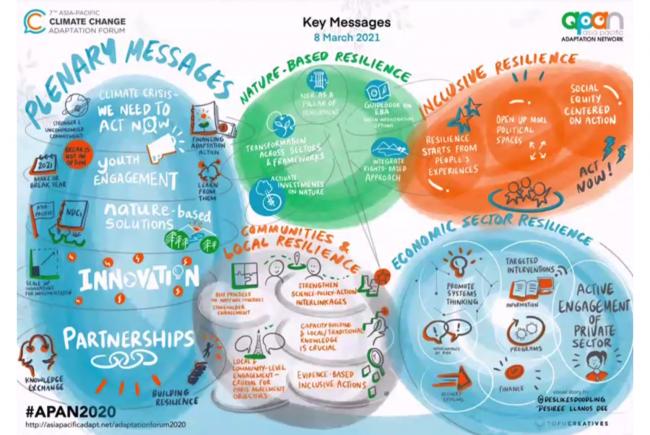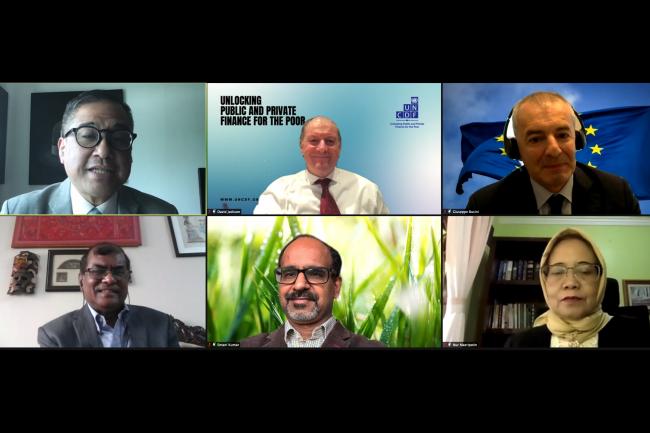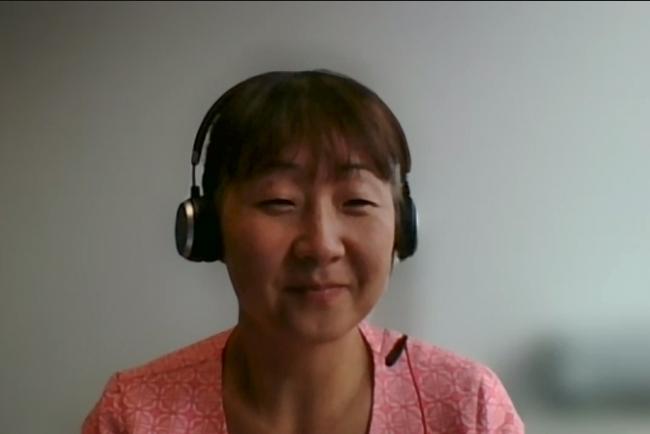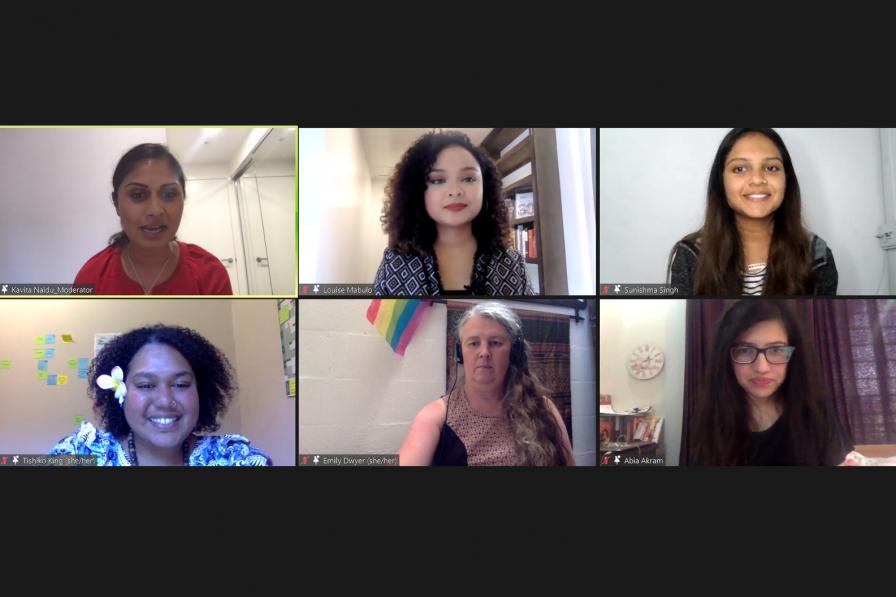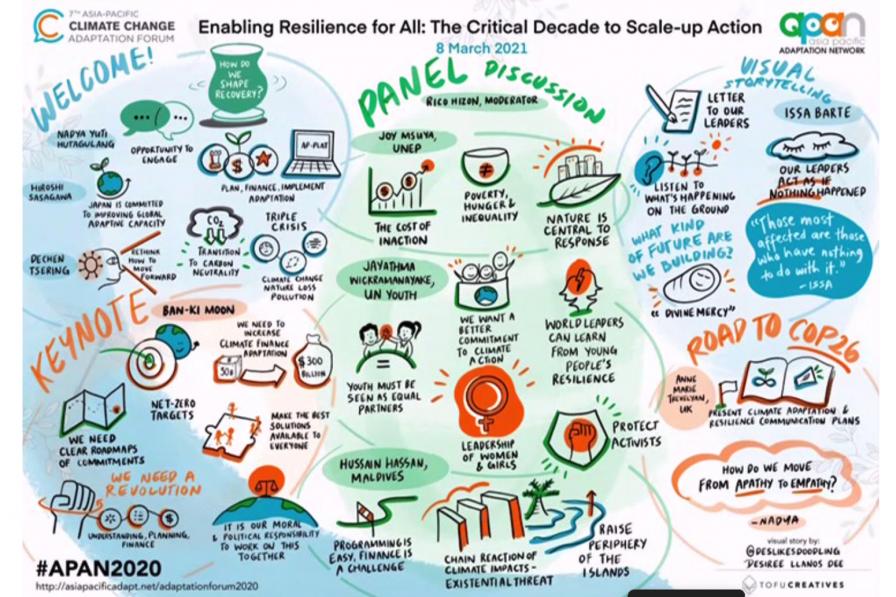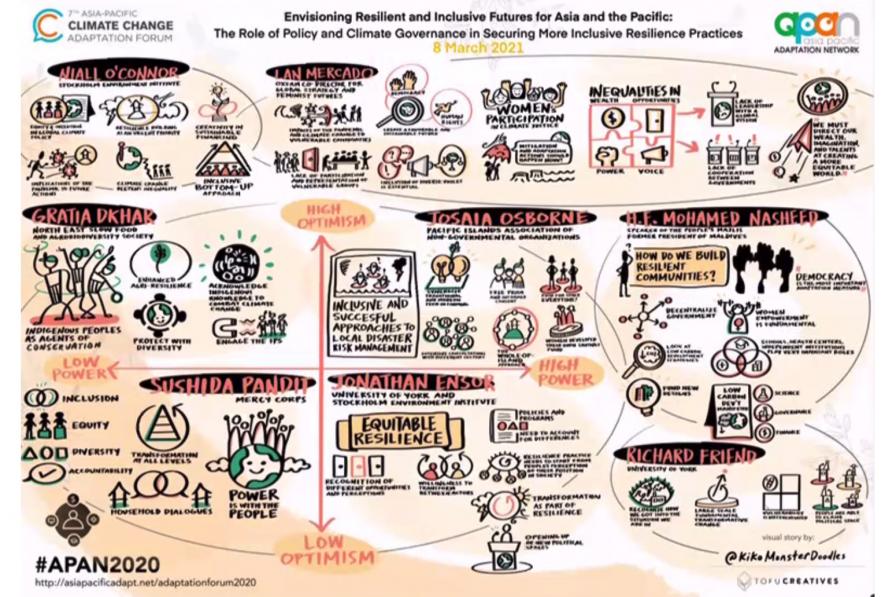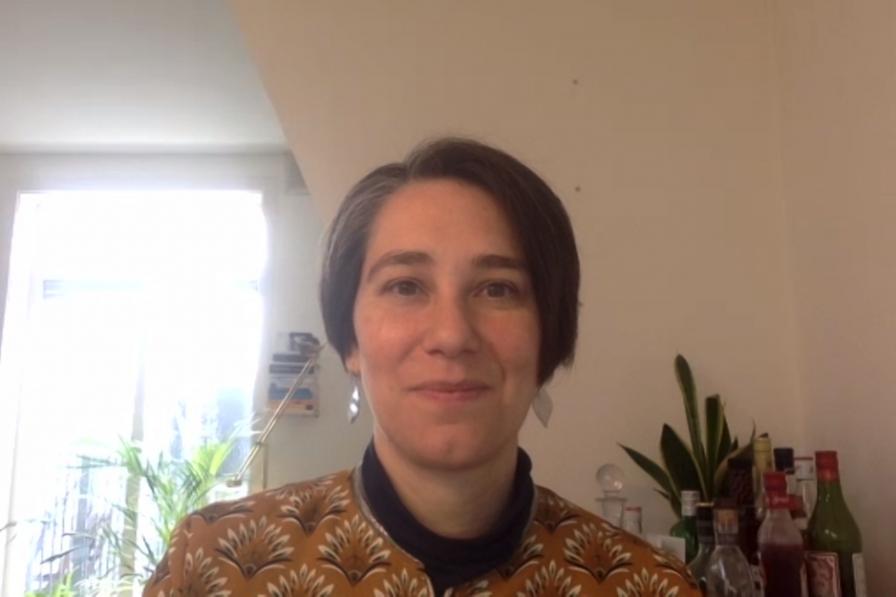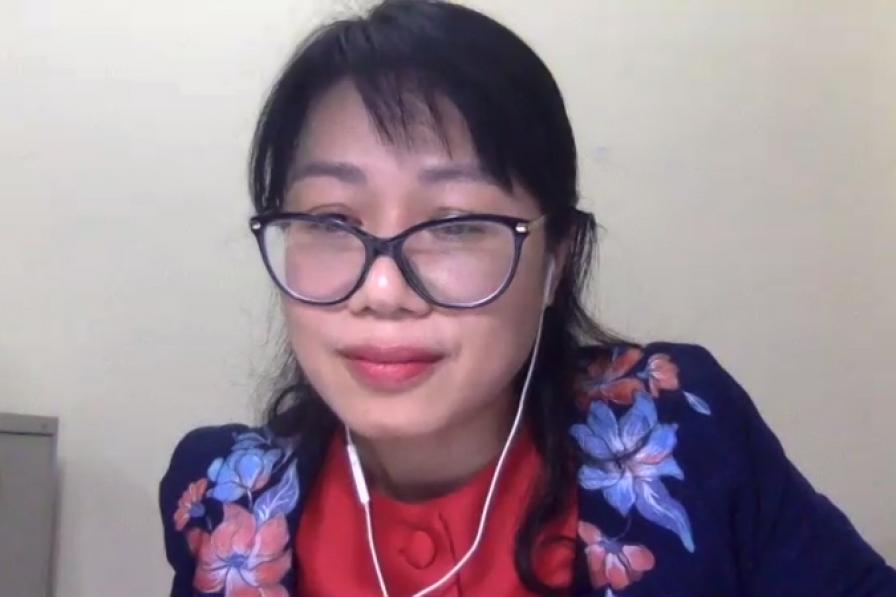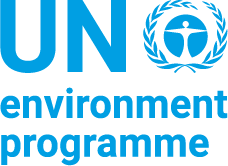Mozaharul Alam, Head, Asia Pacific Adaptation Network (APAN) Secretariat, and Regional Coordinator, Climate Change Programme, UN Environment Programme (UNEP), reconvened the Forum, thanking all key partners. Desiree Llanos Dee, Co-Founder of Tofu Creatives, presented highlights from the first day of the 7th Asia-Pacific Climate Change Adaptation Forum, through an impressive colorful art project, which featured both valuable details and key messages.
Participants joined a plenary session on “Planning and Processes” followed by parallel sessions on “Overcoming the ‘Tragedy of Horizon’ through Climate Resilience in Economic Planning Processes” and “Collaborating Efforts to Strengthening Cities Resilience to Climate and Disaster Risks.” Following a lunch break, they reconvened in two more parallel sessions on “Integrating Nature-based and Ecosystem-based Elements in National Adaptation Planning” and “Supporting Human Rights-based Inclusive Resilience for All.”
Key messages from these sessions include:
- Resilience is a journey, requiring systems thinking, and people and budgeting must be at the center;
- Planning processes need to be vertical and horizontal and lead to integration, and are also an opportunity to work together across sectors;
- Climate change must be mainstreamed in development planning and budgeting, and shifting from a project-based to programmatic approach is needed;
- Adaptation planning requires moving beyond short-term horizons, cross-cutting coordination and green jobs;
- Building cities’ resilience requires inclusive and multi-sectoral approaches;
- Understanding the root causes of vulnerability is necessary for human rights-based resilience, including why certain groups are marginalized;
- Inclusive adaptation planning requires sex, age and disability disaggregated data;
- Ecosystem-based adaptation (EbA) facilitates cross-cutting coordination and integration; and
- Many national adaptation plans already consider EbA principles.
In the evening, participants joined a trivia night on EbA.
